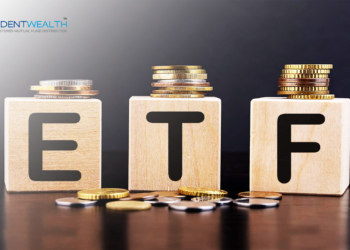Behavioral biases in investing affect all investors in different ways, depending on our investor personality type. Suppose Mr. Happy is stressed out by the long day of work at the office. In the evening, he calls his friend Mr. Joy and discusses with him his day and loads of work.
Mr. Joy advises him that he should make a plan for countryside holidays this weekend, so he can break free from routine life and enjoy a little, thereby reducing stress.
After his last call, Mr. Happy calls his other long-time friend Mr. Calm and discusses with him, the same routine life and stressful work.
Mr. Calm suggests that he should meditate a little in, the early morning before going to his work so that he can reduce his stress and feel peaceful all day long.
If we carefully look, then we find that both the friends have suggested options for reducing stress to Mr. Happy, but each one has a different approach.
It may be because of bias towards a particular type of trait & behavior, i.e., Mr. Joy is an extrovert & loves to socialize a lot, whereas Mr. Calm is a religious & peace-driven person.
In the same way, in the Investment world, we Investors show biases to a particular type of mentality, which is also known as Behavioural Biases, which leads to our Investment decisions.
Today we shall discuss some of them. Starting with:
Loss aversion:
Meaning:
Averse means “having a strong dislike of”. We, as Investors, are Loss averse investors rather than Risk-averse investors. Loss aversion is a bias toward avoiding losses over seeking gains. i.e, We as Investors are more sensitive towards our losses than we are towards the equivalent amount of gains we make.
For example, let’s say that Mr. A bought 6 shares of Paytm @Rs. 500 each totaling Rs. 3,000.
Now, let’s take 2 scenarios:
- The next day the shares went from Rs. 500 to Rs 600. He gains Rs. 600 (Rs 100 * 6), or,
- The next day the shares fell to Rs. 400. He loses Rs. 600.
Here Mr. A will be more upset over the Rs. 100 per share lost in Scenario (b) then he is happy over the same Rs. 100 per share he gained in Scenario (a) i.e Upset> Happiness, for the same Rs. 100.
The learning here is Mr. A is willing to risk his Rs. 3,000 but he is afraid of loss, which implies that he doesn’t dislike risk but he dislikes losses.
Impact on Investing:
Often we hear that people don’t like to invest in the stock market or other asset classes, and their reason is “Share Market bohot risky hai”, which is true. But what they don’t understand is that by eliminating all risks, they are foregoing their probability of gains also. Loss aversion causes us to avoid small risks even when they’re probably worth it. This is why many people save money in their bank accounts rather than invest, even though inflation will erode the value of their savings, while many investments when held for long enough, pay off.
How to deal with it:
Start small even if you dislike risk. Don’t rely on emotions. Even if Rs. 500 is put in several stocks, it can give better returns than Saving Bank accounts. The BIGGEST risk is NOT taking risks.
Overconfidence bias:
Meaning:
Overconfidence bias is the tendency to see ourselves as better than we actually are. Where we are of the view that whatever we think is true and will happen.
Impact on Investing:
The problem with the overconfidence bias is that it makes an investor overestimate their abilities and knowledge.
For example, often when we invest in a stock, some investors do their research which may be an hour of reading about some news about a particular sector, or about the stock in which we are considering investing. Based on that we may conclude that it will go up by some amount in the next 2 days (say) and we buy it. Often we may incur losses, and then we end up saying that the “Stock market is a gamble”.
If we just think for a second that our one hour of research may mean nothing compared to the research a Portfolio manager or Investor or even a trader (sitting in front of the screen, the whole time during market hours) does and is going to put thousands and millions of Rupees into a stock. He may have far better quality & quantity of information than we as Retail investors have access to. Ultimately we over-assume our abilities and become a gambler ourselves.
How to deal with it:
For a novice investor, you may consider passive investing i.e., buy and hold the stock strategies, with a long-term perspective or, you may consult Retail Wealth managers (such as Prudent Wealth).
Herd behavior bias:
Meaning:
Herd behavior bias is when investors follow others rather than making their own rational decisions based on financial data. In other words when Investors move in herds of Sheep and are driven by a common behavior rather than rational judgment.
For example, often we have seen investors investing in a stock, just because their friend has bought the same stock or, they read that some ace Investor (say Mr. Rakesh Jhunjhunwala) has bought a particular stock, and they often sell a stock just because Some mutual fund has offloaded their position in that stock.
Impact on Investing:
We don’t understand that herd behavior can backfire, it can lead to financial bubbles, such as the popular Harshad Mehta scam of 1992. We don’t know the intention of the person we are following, and in the event of a crash, he may have access to better strategies to cut losses, than we have.
How to deal with it:
Don’t fall prey to the stocks promoted via SMS/Calls or by some random Internet forum. Always check for the companies fundamentals before investing your hard-earned money.
Written by: CA Dhiraj Kejriwal
To learn more, get our Journal: PW Insider for FREE!
Read Next: Blockchain 101: A Complete Guide
For more information, reach us at [email protected]
Team, MyGoalMySip.











